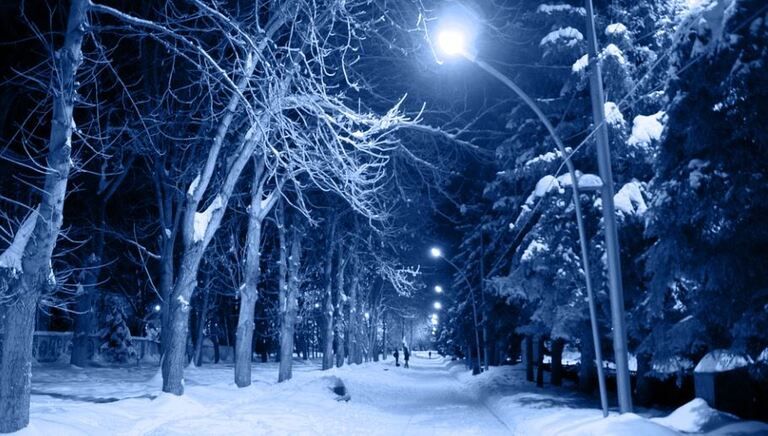Nursing home residents who have dementia or other cognition-affecting issues can often pose a risk to themselves and others if not properly cared for. One of the main risks among dementia patients is the tendency to wander or elope from the facility. To prevent this behavior—especially in frigid weather, when it is even more dangerous—nursing homes must implement a variety of safeguards that will protect their residents.
You may have legal recourse if your loved one was injured or even died as a result of freely being able to wander or escape from a nursing home. Call Senior Justice Law Firm at 888-375-9998 to speak with our team to investigate the matter.
What Is Wandering and Elopement?
The terms “wandering” and “elopement” are often used interchangeably, but they do mean different things. Wandering refers to the behavior in which a resident leaves their planned location (whether that is their room, their place at a communal dining area, and so on) and moves about on their own without supervision. This activity can place them in harm’s way and cause them to get lost if they cannot remember their way back.
Elopement is slightly more severe. If a resident is able to wander without supervision such that they exit the building, they are considered to have eloped. This can happen for a variety of reasons, from doors being left open to air out a space to the failure of door locks to keep residents inside.
Stopping Elopement in Freezing Weather
Elopement is always dangerous. A resident may fail to navigate safely back to their quarters, and they may sustain injuries once outside by falling or even wandering into traffic. However, one of the most common reasons that elopement becomes dangerous is cold weather. Elderly bodies are less resilient to the cold due to frequent reduce circulation capabilities, and residents who wander into the freezing weather are very susceptible to hypothermia. In fact, freezing to death is not uncommon in elder patients who have eloped in cold weather, with multiple cases reported each year. Additional dangers associated with elopement in cold weather include potential risks such as falling heavy snow (such as from roofs) and the tendency to slip on ice, which even the most surefooted have likely experienced from time to time.
Nursing homes are responsible for preventing elopement and wandering within their facilities, and they have a variety of tools available to do so.
Enclosed Outdoor Spaces
To safeguard against both elopement and the threat of cold weather specifically, many nursing homes have elected to install enclosed outdoor spaces. Not only does this offer protection against frigid wind and the elements like ice and snow, but it also acts as an additional barrier that prevents a dementia patient from wandering far from the facility. While to enclosed space should be used with the intention of “capturing” eloped residents, this is a beneficial additional service that they can offer beyond a climate controlled place to be.
Installation of Door Alarms
One of the most common methods for preventing elopement is door alarms. Nursing homes can install alarms on their exterior doors (and even doors that are not meant to be accessed) that will sound when an unauthorized individual (such as one without a badge) opens the door. This prevents residents from sneaking out when no one is actively watching them by playing a loud chime. The use of alarms can also be extended even to bed alarms, which track the weight placed on a specific type of mattress pad. If the weight is removed—that is, if a resident gets up unexpectedly—the alarm will sound, indicating to staff that a resident may have begun to wander.
Patient Tracking Systems
In a way, bed alarms can also be classified under the broad category of patient tracking systems. However, thanks to consistent developments in technology, more options than ever have emerged to keep track of individual residents. Wanderguard bracelets can be assigned to each resident that will sound an alarm if that individual moves into an unauthorized area. These bracelets can also be programmed to lock doors that residents are trying to use. Other types of technology also exist, such as sensors that monitor momentum, which may indicate that a resident has begun to move unsupervised.
Utilizing Locking Systems
Automatic door locks are one of the simplest methods available to keep residents from wandering or eloping. This includes not only doors that lock when residents are nearby but also doors that remain locked and need to be buzzed or verified in order to get through, such as with a nurse’s keycard. Other types of locking systems also exist, such as those that can differentiate between types of key cards or keypad inputs. This allows for nurses and staff to move about freely using tools such as bracelets while preventing residents from doing the same, all without the hassle of using physical keys within locks.
Is a Nursing Home Liable for Wandering and Elopement in Dementia Patients?
The short answer is that yes, a nursing home can be liable for a resident who wanders or elopes from the facility. It is the nursing home’s responsibility to ensure that their building is secure, and additional steps should also reasonably be taken, such as assessing each resident (with dementia or not) for risks such as falling and elopement. If someone that you love has been injured or even passed away as a result of wandering or elopement, it is important that you reach out as soon as possible after the event so that relevant details (such as the security of the doors and locking systems) can be investigated before the systems are changed or modified.
If any of the above scenarios happened to your loved one under the supervision of a long-term care facility, call Senior Justice Law Firm today. Dial 888-375-9998. The call and consultation is free.



